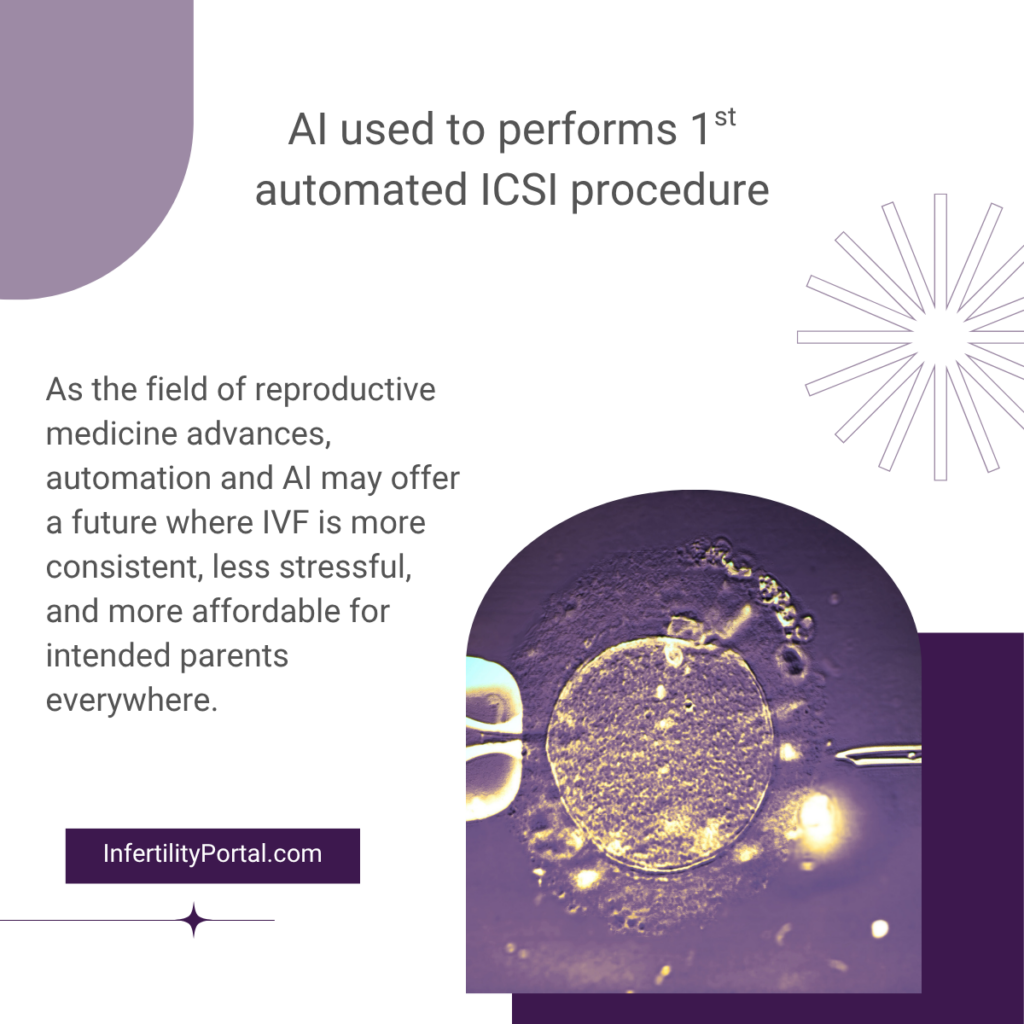A New Era in Fertility Treatment: Machines Now Performing Key IVF Procedure
In a major leap forward for fertility medicine, scientists have developed a system that allows a key part of the in vitro fertilization (IVF) process to be performed entirely by machines. The breakthrough could help reduce human error, improve standardization, and eventually lower the cost of IVF for patients worldwide.
What’s New?
A biotechnology company called Conceivable Life Sciences, based in New York City, has created an automated system that performs the delicate procedure known as intracytoplasmic sperm injection (ICSI). ICSI is a common IVF technique where a single sperm is carefully injected into an egg to assist fertilization.
Traditionally, this process requires skilled embryologists to carry out each step by hand, a time-consuming and high-pressure task. But Conceivable’s system handles all 23 steps involved in ICSI, including selecting the best sperm, injecting it into the egg, and even identifying the most viable embryos for transfer.
How It Works
The groundbreaking trial took place across two continents. The entire procedure was performed by machines in a fertility clinic in Guadalajara, Mexico, while embryologists and engineers monitored and initiated each step remotely from Hudson, New York.
Key innovations include:
-
An artificial intelligence (AI) system chooses sperm based on shape and appearance.
-
A laser precisely disables the sperm’s tail.
-
A motorized tool gently pierces the egg’s membrane in one smooth motion to inject the sperm.
-
Another AI algorithm selects the best embryos based on chromosomal structure and potential for implantation.
Each step is triggered remotely by a human technician overseeing the process, ensuring real-time control without manual execution.
Why This Matters
According to Dr. Alejandro Chavez-Badiola, co-founder and Chief Medical Officer of Conceivable, the goal is to standardize ICSI. Currently, every embryologist uses their own method, which introduces variation and risk. Egg cells are extremely fragile. Too much pressure during injection can damage or destroy the egg, preventing fertilization.
The aim is that by automating this procedure it would result in a reduced workload in embryology labs and improve consistency.
What the Results Showed
In this initial trial, eight eggs were used:
-
5 eggs fertilized using the new system resulted in 4 embryos.
-
3 eggs fertilized manually all developed into embryos.
The manual process was faster than the automated system, but as the technology advances, efficiency and processing time are expected to improve significantly.
What’s Next?
This technology does not yet handle egg retrieval or embryo transfer into the uterus, which must still be performed by medical professionals. However, the automation of ICSI alone could make IVF more efficient and accessible, especially in clinics with limited staff.
The ultimate vision, according to Chavez-Badiola, is to reduce costs, improve global access, and help more families achieve the dream of having a child.
It is exciting to imagine how artificial intelligence will continue to transform the future of fertility treatment and expand access to parenthood.


